BUTYRIC-CAL-MAG (Intestinal Support) – 60 Capsules
*** Please Login or Register with DC Nutrition to see Prices and Add To Cart. ***
Login | Create An Account / Register
BUTYRIC-CAL-MAG contains calcium and magnesium salts of butyric acid. Butyric acid is a naturally-occurring 4-carbon, fatty acid that is naturally formed in the healthy colon by the fermentation of dietary fiber by friendly bacteria.
BUTYRIC-CAL-MAG is a prime energy source for the lining of the gastrointestinal tract. In cell cultures, Butyric-Cal-Mag has been shown to promote normal differentiation and affect morphology and growth rate. SEE: Butyrates
You would use BUTYRIC-CAL-MAG in conditions such at ulcerative colitis, leaky gut syndromes, irritable bowel syndrome, etc.
NOTE: Butyric Acid can have a funky smell about it. If you have ever taken organic chemistry in school you know what I mean. This product is insured and shipped fresh every time somebody orders it.
PRODUCT DESCRIPTION
Butyric-Cal-Mag™ supplies Tributyrin, a butyrate generator. Upon breakdown by gut enzymes, it supplies the postbiotic butyrate, the primary fuel of colonic cells. Butyric acid is a naturally-occurring 4-carbon fatty acid formed in the healthy colon from the fermentation of dietary fiber by friendly bacteria.
INGREDIENTS
Butyric Acid, Calcium, Magnesium, Panthothenic Acid, Vitamin A, ButyraGen™ Tributyrin Complex
Ethyl vanillin (flavoring) and capsule shell (gelatin and water).
DOSAGES AND WARNINGS
One (1) to two (2) capsules with each meal as a dietary supplement or as otherwise directed by a healthcare professional. KEEP OUT OF REACH OF CHILDREN.
ADDENDUM
BUTYRATES & THE AUTO-IMMUNE RESPONSE
Allergies and food sensitivities are well known to be part of the syndrome of immune suppression. Each allergic reaction further suppresses immune response and creates mounting levels of inflammation throughout the body. Here, we are more concerned with the effect of inflammation in exacerbating poor integrity of the gastrointestinal wall. Since many antigenic reactions are a result of "leaky gut syndrome", i.e. the passage of partially undigested food particles through the swollen and inflamed mucosal wall into the blood, some desensitization must occur to re-establish a normal immune response.
Traditional treatments may include sublingual drops or injections of dilute extracts with subsequent possibility of anaphylactic shock, often commensurate with avoidance of those foods. Identification of food allergens is often elusive, due to the variable time lag between the ingestion and onset of symptoms.
Most clinical identification methods, including trial elimination diets and food skin tests are lengthy, costly, and often inconclusive. Some new research shows that many antigenic reactions may occur only on the walls of the GI tract and therefore may not show up in blood or skin tests.
Using butyrates can circumvent these processes by stimulating extremely rapid repair of the mucosal wall. Butyric acid works in several ways:
1. It reduces the inflammatory condition of these walls reducing intracellular seepage of undigested food particles.
2. It seals up the holes left by penetration of the roots, i.e. rhizoids, of Candida albicans overgrowth, which are often implicated in secondary food sensitivities. For best results, butyric acid can be used in conjunction with caprylic acid (Caprin) one of the most effective antifungals available on the market today, with a remarkable lack of side effects.
3. By stimulating epithelial sloughing in the intestinal tract, new attachment sites are created for favorable bio-flora such as bifidus and acidophilus cultures. Re-establishing the balance of protective bacteria supports our enzyme and fighter cell capabilities, which is necessary for stronger immune support.
In compromised immune systems, undifferentiated cell growth can be inhibited by butyric acid, as reported in Cancer Research November 1982. The earliest reference to this phenomena was reported by James Watson: "Butyric Acid In The Treatment Of Cancer" The Lancet, April 8, 1933. pp 746-748.
Vitamin A, Beta-carotene, and Pantothenic acid: Nutrients and the epithelial mucosa of the large intestine.
VITAMIN A AND BETA-CAROTENE
Vitamin A is necessary for normal growth of most cells of the body and especially for normal growth and proliferation of the different types of epithelial cells. Vitamin A deficiency causes epithelial structures to become stratified and keratinized, which can lead to malabsorption of nutrients due to their (nutrients) inability to cross less permeable membranes.
Cellular growth and development
Vitamin A is necessary in the synthesis of many glycoproteins, some of which may control cellular differentiation. This is important in healing the epithelium of the large intestine, which may have been damaged due to candidiasis, irritable bowel syndrome or other gastrointestinal disorders.
Deficiency of vitamin A produces a loss of normal stimuli for cellular growth and differentiation. At the cellular level, the effects of vitamin A deficiency are most readily seen in those differentiating tissues that have a rapid turnover rate, i.e., epithelial cells of the oral cavity, respiratory tract, urinary tract, ducts of secretory glands, and the large intestine.
Immune Functions
Epidemiological studies have shown a strong inverse correlation between vitamin A and carotene intake and a variety of cancers involving epithelial tissues (lung, skin, uterine cervix, gastrointestinal tract). Both nutrients, particularly carotenes, have exhibited anti-tumor activities in Vitro. Beta-carotene has been shown to potentiate interferon's stimulatory action on the immune system and to inhibit interferon's suppressor effects on host effector cells. Beta-carotene is also one of the most important anti-oxidants.
Vitamin A and carotenoids have been shown to stimulate and/or enhance numerous immune processes, including induction of cell-mediated cytotoxicity against tumors, natural killer cell activity, and lymphocyte blastogenesis enhancing humoral and cell-meditated immunity, mononuclear phagocytosis, and antibody response.
Epithelial and mucosal tissue integrity
Vitamin A plays an essential role in the maintenance of epithelial and mucosal surfaces and their secretions. Epithelial surface integrity and mucosal surface secretions (many of which are immune enhancing) constitute a primary nonspecific host defense mechanism. This is of great importance in the large intestine for fighting candidiasis and food allergies, which require a strong and healthy immune system.
PANTOTHENIC ACID
A balanced adult diet can supply 5 to 20 mg of pantothenic acid daily. With an optimal bacteria flora in the gastrointestinal tract, pantothenic acid will also be produced.
Pantothenic acid is mainly incorporated in the body into coenzyme A which has important roles within the cell. CoA allows acetyl groups, from metabolism of fats, carbohydrates and proteins, to enter cellular energy pathways. Also, pantothenic acid, as in acetyl CoA, is needed for the synthesis of cholesterol, steroid hormones and fatty acids.

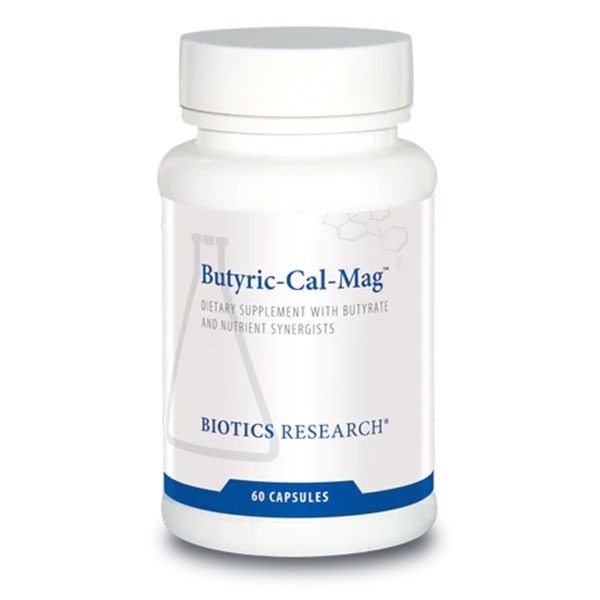
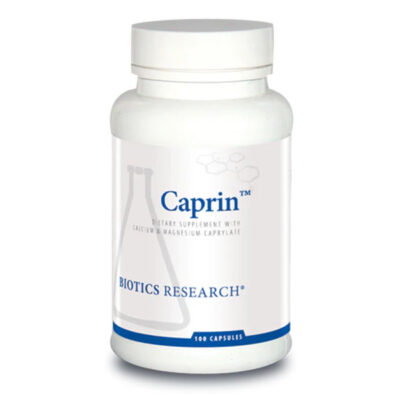
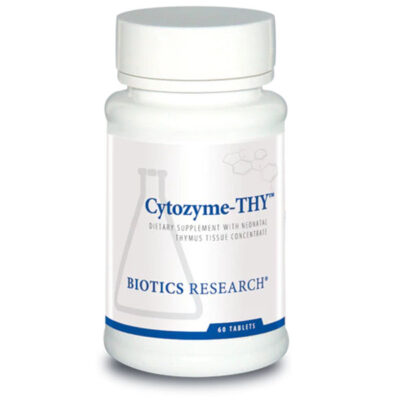
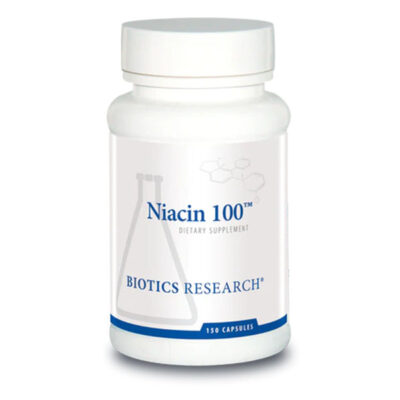
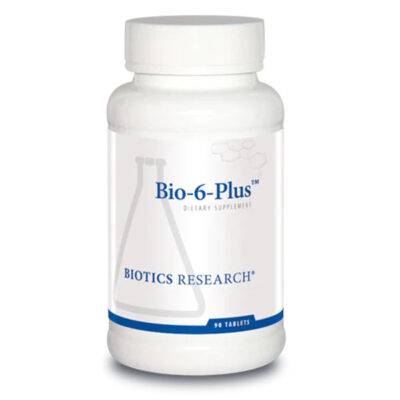
Reviews
There are no reviews yet.